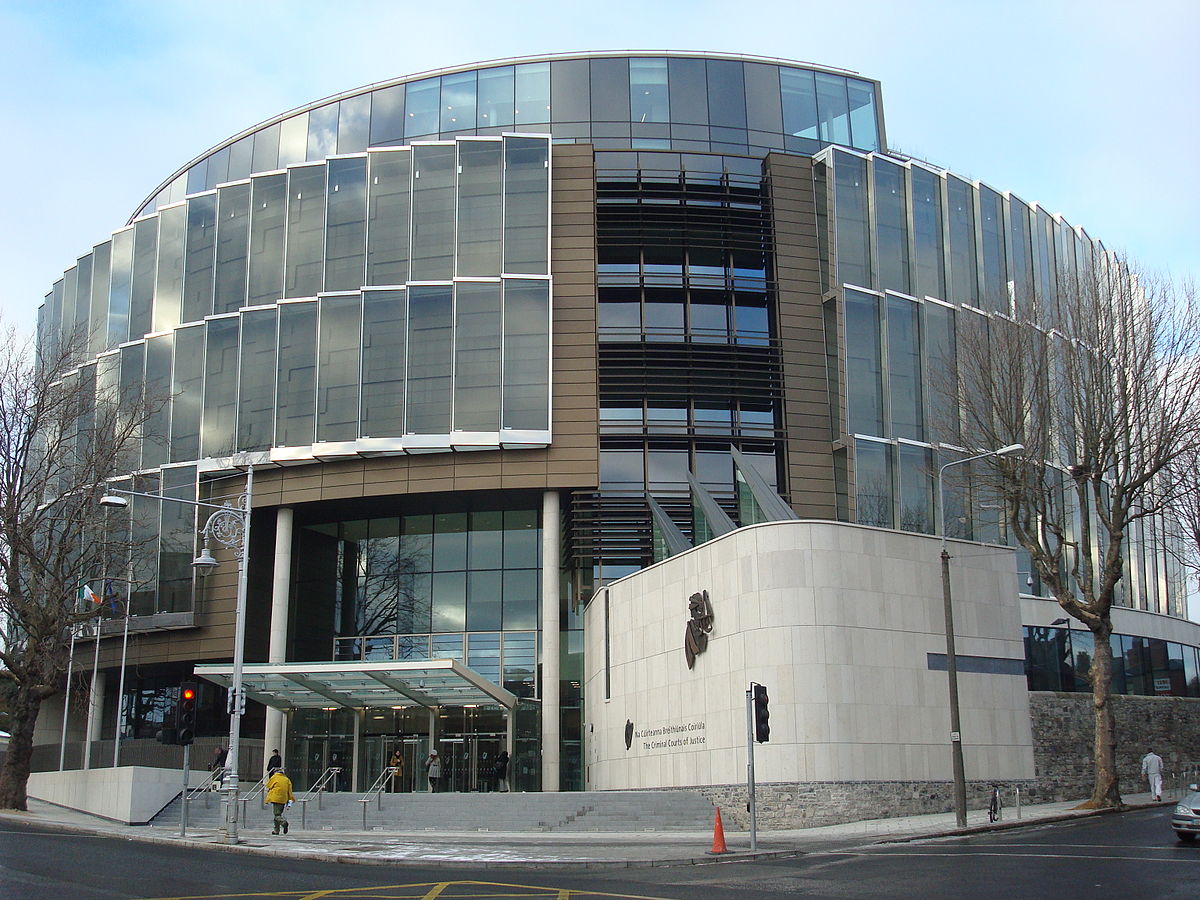Criminal Injury Claims

According to the Central Statistics Office, there were over 50,000 violent crimes in Ireland in 2019. Given the COVID-19 pandemic and the consequent cessation of socialising in pubs and nightclubs, one would have expected the incidence of violent crime to have dropped in 2020. While there was a drop, it was not as significant as you would suspect; there were still over 45,000 violent crimes committed in Ireland. If you or a loved one has been unfortunate enough to suffer such a crime, you will know just how distressing this can be. Hanahoe & Hanahoe solicitors have over 40 years’ of experience representing victims of crime, either by submitting an injury claim* to the Criminal Injuries Compensation Tribunal, or by bringing a personal injury claim* on behalf of the victim.
Table of Contents
What is a Criminal Injury Compensation Claim?
Bringing a Criminal Injury Compensation Claim
Criminal Injuries Compensation Tribunal
What is the Time Limit for Making a Claim?
Personal Injury Claims Arising Out of Criminal Injuries
What is a Criminal Injury Compensation Claim?
Crimes such as assault, sexual assault and robbery often give rise to significant and sometimes catastrophic physical injuries. They can also cause major psychological trauma, and it is not uncommon for victims to experience Post Traumatic Stress Disorder, anxiety, depression and suicidal ideation.
Unfortunately, many victims are unaware of the possibility of bringing a criminal injury compensation claim*. Such payments may be significant, particularly in cases of assault, sexual assault or child sexual abuse. If you have experienced injury as a result of a violent crime been the victim of crime, you should speak to one of our specialist solicitors* who will be happy to assist you.
Bringing a Criminal Injury Compensation Claim
If you have been the victim of a crime, the first thing you should always do is seek medical help. Thereafter, it is essential that you report the matter to the Gardaí so they can investigate and hopefully charge the perpetrator. However, even if the perpetrator is charged, a Criminal Court cannot make an Order for damages. In other words, the Court cannot direct the accused to financially compensate the victim for their injuries. Even if the Court could, the vast majority of criminals could not afford to pay it. The accused may offer the victim some form of compensation in an attempt to avoid a prison sentence, but the amount of compensation is generally nominal and does not come close to compensating the victims for the damage suffered.
Compensation from the Offender
While it is often impossible to get compensation from the criminal offender, this is not always the case. Sometimes the offender has the means or assets to meet an Order for damages. Our solicitors have secured significant compensation payments* for victims, directly from offenders, particularly in sexual abuse and assault cases. Depending on the individual case, this may require us seeking and enforcing judgement on behalf of the victim, however, the offender may be eager to settle. At your initial consultation, our expert criminal injury solicitors* will assess not only whether you have a strong case, but also the prospects of the offender compensating for damages.
Criminal Injuries Compensation Tribunal
The Criminal Injuries Compensation Tribunal is a statutory compensation scheme for victims of violent crime; for those injured while trying to prevent a crime; and for the families of deceased crime victims.
The Criminal Injuries Compensation Scheme Ireland
On receipt of an application, a member of the tribunal will assess whether the injured victim is eligible for compensation under the Scheme of Compensation for Personal Injuries Criminally Inflicted. It is a requirement of the Scheme that the incident has been reported to the Gardaí, and that the victim has and continues to cooperate with the Gardaí. However, it is not a requirement that the Gardaí have charged the victim or even investigated the crime.
Who Can Make a Claim?
- Victims who sustained a personal injury* directly as a result of a reported violent crime.
- Persons who sustained a personal injury* attempting to prevent a reported violent crime, or in attempting to save someone’s life.
- Dependents of a victim who has died due to a violent crime.
What Can I Claim For?
- Out of pocket expenses, including medical bills.
- Loss of earnings.
- Estimated future loss of earnings.
- Estimated future medical costs.
- Estimated future expenses as a result of the disability (e.g. care costs or special equipment).
Often, clients who do not have severe physical injuries can have very large cases, due to the significant physiological injuries suffered. We particularly see this in sexual violence cases, where the victim suffered significant Post Traumatic Stress Disorder, interfering with their ability to work, resulting in up to hundreds of thousands of euro in expenses. In complex or large cases, professional advice is necessary to properly present one’s claim, particularly where it is necessary to obtain numerous medical reports, together with actuarial reports and reports from occupational and vocational assessors. Our criminal injury compensation solicitors* have the experience necessary to prepare such claims*, ensuring that the appropriate assessment is made.
Where a family member has died as a result of crime, the victim’s family will be paid the actual loss of earnings (to include social welfare payments) and expenses that may have been incurred before the death, as well as the future loss of support/ maintenance, funeral and burial expenses, and mental distress money for immediate family members.
Reasons Your Claim May Not Be Assessed
- The victim is not a resident of the state.
- The Criminal Compensation Tribunal is satisfied that the victim was responsible (either due to provocation or otherwise) for the offence that caused their injuries. In such cases, the Criminal Injuries Compensation Tribunal can either dismiss the claim or reduce the amount of the award.
- The Criminal Compensation Tribunal is satisfied that the victim’s way of life contributed to or caused their injuries.
What is the Time Limit for Making a Claim?
An application to the Criminal Injuries Compensation Tribunal must be made in writing, in accordance with the application form provided by the scheme as soon as possible and no later than three months after the incident. That said, a late application can be made where the Tribunal considers the circumstances exceptional. Due to hospitalisation, psychological injuries, such as post traumatic stress and a variety of other factors, many of our clients are late submitting their criminal injury compensation claims*. While we would always advise clients to submit their application form within the time limits, where possible, we always advise clients to submit their claims regardless of them being late. Different time limits apply for Fatal Injury Claims and advice should be sought from one of our Criminal Injury Compensation Solicitors*.
How Long Does a Criminal Injury Claim Take?
The length of time may vary greatly, depending on the complexity of the case. Typically, final Garda reports on the crime are required, as are the outcomes of any criminal proceedings brought. The Criminal Compensation Tribunal will not consider an application for compensation until the Gardaí has concluded its investigation. However, that does not mean you should wait until the investigation has concluded before submitting your claim, as you may then be out of time.
The Tribunal requires medical opinions on injuries; this can play a major part. In some cases, the extent of injuries sustained may not be known for months or years.
Cases including complex loss of earnings claims may require employer assessment, social welfare reports or actuarial assessment. These and other factors affect the duration of any particular application.
Personal Injury Claims Arising Out of Criminal Injuries
In certain circumstances, other parties may have a duty of care to you and as such, you can take a personal injury claim* against them as a result of criminal injuries. Under the Criminal Injuries Compensation Scheme, the two main differences between these types of claims are:
- That the time limit is two years, as opposed to three months.
- If you claim for personal injury*, you can seek damages for your injuries as well as loss of earnings and out of pocket expenses.
Compensation from the Offender’s Employer
If the offender is employed, i.e. a bouncer, security guard or teacher, it may be possible to seek compensation if the assault occurred in the context of their employment. This does not always mean it must occur at their place of employment. This is a complex area of law and requires specialist advice, which Hanahoe & Hanahoe can provide.
Compensation from the Church, State Bodies, or Voluntary Organisations
Unfortunately, many people have been the victims of clerical child sexual abuse, sexual assault or assaults, while attending voluntary organisations or sports clubs, or while attending school. Such institutions are required to have procedures in place to protect the public and may be directly responsible for the actions of their members or organisers. Victims often find that they are unable to speak about what occurred until many years later and for this reason, there are exceptions to the time limits which apply to ordinary civil claims. Hanahoe & Hanahoe have successfully represented victims of clerical sexual abuse, and those who have been the victims of sexual abuse and assault while members of voluntary organisations or sports clubs.
Assaults in Pubs, Nightclubs, Shops and Takeaways
The owners of pubs, nightclubs and similar venues—such as late-night shops or fast-food restaurants—have an obligation to keep their patrons safe while on their premises and in certain cases, the surrounding area. This includes an obligation keep customers safe from assault, sexual assault and robberies.
You could claim for personal injuries against the owners of the premises if:
- Clearly intoxicated or aggressive individual/s were allowed to remain on the premises.
- The venue did not have sufficient security staff working, or the venue was so overcrowded that security staff could not ensure your safety.
- You were assaulted by members of the staff.
In such circumstances, it is essential that you immediately report the assault to the owners of the premises, and to the Gardaí. CCTV footage can play a key role in successfully bringing such claims*; it is therefore preferable that you connect with a specialised criminal injury solicitor quickly, so we can ascertain whether the site was covered by CCTV and ensure that any footage is maintained.
Hanahoe & Hanahoe solicitors have successfully represented countless clients in claims against pubs, nightclubs, late-night shops and fast-food restaurants. In a recent case, the owners of a late-night shop were required to pay €750,000 to a customer who they had thrown out and refused to let back in—after which point he was assaulted outside their shop.
Compensation from your Employer
Your Employer has a duty of care to protect you from assault, sexual assault or robbery while at work. This can arise in many circumstances. For example, security or bar staff are very vulnerable to assault. Similarly, almost 1000 assaults in healthcare settings were reported in 2019, of which 70% were assaults on nurses. This is a very conservative figure; most assaults are not reported, with psychiatric nurses at particular risk.
At Hanahoe & Hanahoe solicitors, we have successfully represented nurses, psychiatric nurses and other healthcare professionals in claims against their employers for damages for assault.
Robbery at work is also a common occurrence, which can have devastating consequences. Your employer should not expose you to an unreasonable risk of robbery by requiring you to manage large amounts of cash, or failing to provide you with reasonable protection through screens, security, sufficient fellow employees or panic alarms. At Hanahoe & Hanahoe solicitors, we have successfully represented employees in cases involving robbery in a bookmaker’s shop, a delivery driver and warehouse staff.
Where the offender is a fellow employee, you may be entitled to compensation from your employer, particularly if the person is in a position of authority or has a history of aggressive or inappropriate behavior.
If you have any queries in relation to the above, our specialist criminal injury solicitors* are in a position to advise you. Hanahoe & Hanahoe solicitors are an award-winning law firm and represent clients across the country in criminal injury compensation claims* and personal injury claims*.
*In contentious business, a solicitor may not calculate fees or other charges as a percentage or proportion of any award or settlement.


